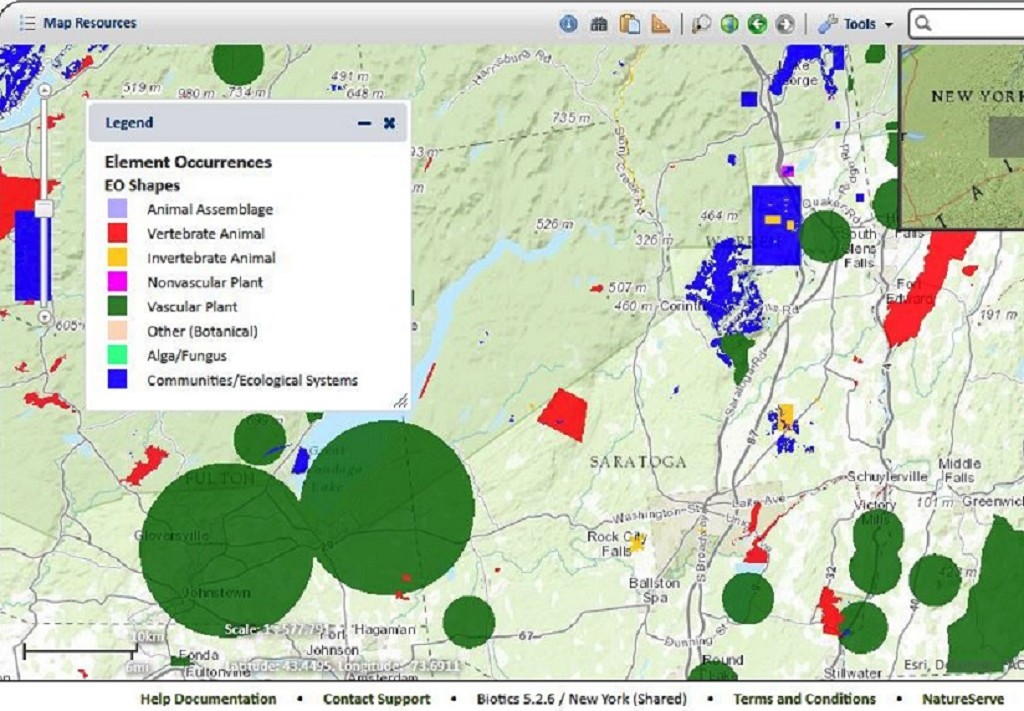NatureServe Biotics is an integrated, web-enabled platform for tabular and spatial data management. Used by the NatureServe Network, the system provides built-in support for our shared methodology and data standards.

NatureServe Biotics provides a common data management platform for members of the NatureServe Network to achieve and maintain a unified taxonomy and consistent application of our shared data standards and methodology. The NatureServe Biotics database underpins NatureServe map and data products like the National Species Dataset, and NatureServe Explorer at the international scale, and a wide range of products at the state and provincial scale, such as species field guides and checklists, or online applications to support conservation planning and environmental review.
NatureServe Biotics provides the framework for managing taxonomic and biological data on elements of biodiversity, including plant and animal species and ecological communities, along with supporting information such as references. NatureServe Biotics is also used to map locations on the ground, known as "element occurrences," current and potential conservation sites, and areas of land under protective management.
Using a software-as-a-service delivery model, NatureServe Biotics centralizes the data and software hosting in a shared "cloud" environment maintained by NatureServe. This sustainable model ensures ongoing system improvements can meet user demand. System benefits include:
- System-wide cost savings across the NatureServe Network by consolidating more than 50 separate database instances to a centralized hosting facility.
- Better interoperability and data sharing with partner systems through the use of open data and technology standards.
- Near real-time data synchronization among NatureServe Network programs using a web services architecture.
- ArcGIS Server-based mapping platform allows users to overlay NatureServe Biotics data with map services available on the Internet.
- Multi-lingual interface supports English, French and Spanish speaking users.
- Integrated online Help Desk and user documentation.


